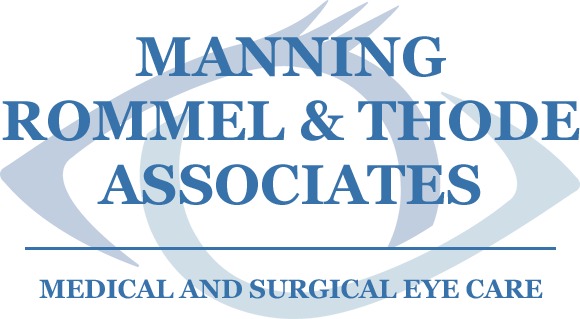
Your eyesight is one of your most precious senses, yet it’s something many of us take for granted until a problem becomes undeniable. We often assume that if we can see, our eyes must be healthy. However, subtle changes in your vision and overall health can be early warning signs that it’s time for a professional check-up. Scheduling a routine vision exam is a crucial, proactive step in preserving your sight for a lifetime.
Many people wait until they experience significant blurriness before seeing an eye doctor. However, your eyes can reveal a lot about your overall health, and a comprehensive exam can detect issues long before you notice symptoms.
7 Signs You Should Schedule a Vision Exam
If you’re wondering whether it’s time to make an appointment, here are seven key signs that you should schedule a vision exam.
1. You’re Getting Frequent Headaches
Do you find yourself ending the day with a nagging headache, especially around your temples or forehead? While many things can cause headaches, eye strain is a very common culprit. When your eyes have to work too hard to focus, due to an uncorrected refractive error like nearsightedness or astigmatism, the tiny muscles in and around your eyes become fatigued. This strain can easily trigger a tension headache. If headaches after reading or screen use are a regular occurrence, it’s a clear sign you need a vision exam.
2. You’re Squinting to See Clearly
Squinting is an almost reflexive action when you’re struggling to see. It’s your brain’s clever trick to temporarily improve the sharpness of your vision by slightly changing the shape of your eye’s lens and limiting extra light. If you catch yourself squinting to read road signs, see the TV, or make out text on your phone, your eyes are telling you they need help. This is a classic symptom of a refractive error that a new prescription for glasses or contacts can easily correct.
3. Your Eyes Feel Tired or Strained
Digital eye strain is a growing concern. Long hours spent staring at computers, tablets, and smartphones can leave your eyes feeling tired, achy, watery, or dry. While these symptoms can be temporary, they can also indicate an underlying vision problem that is being made worse by screen use. A comprehensive vision exam can determine the cause of your discomfort, and our doctors can recommend solutions, from specialized computer glasses to effective dry eye treatments.
4. Night Driving Has Become Difficult
Are the headlights from oncoming traffic creating more glare and halos than they used to? Is it getting harder to see lane lines and signs in the dark? Difficulty with night vision is a common issue and can be one of the first signs of developing cataracts or other conditions. It can also simply mean you need an updated prescription. Because driving at night is so visually demanding, any change in your ability to do it safely warrants a vision exam.
5. You Can’t Remember Your Last Eye Exam
This may sound obvious, but it’s one of the most important reasons to book an appointment. A routine vision exam is a critical part of your preventative healthcare. Many serious eye diseases, such as glaucoma, have no noticeable symptoms in their early stages. During a comprehensive exam, we do much more than just check your vision; we assess the health of your entire eye, allowing us to detect these “silent” conditions early when treatment is most effective. Adults should have a vision exam every one to two years, or more frequently if recommended.
6. You Notice Floaters or Flashes of Light
Seeing occasional “floaters,” which are those tiny specks or squiggles that drift across your field of vision, can be normal. However, a sudden increase in floaters, especially when accompanied by flashes of light, is not. These symptoms can be a sign of a serious, sight-threatening condition like a retinal tear or detachment, which requires immediate medical attention.
7. You Have Certain Health Conditions
Your overall health is directly linked to your eye health. Conditions like diabetes, high blood pressure, and high cholesterol can all damage the delicate blood vessels in your retina, leading to vision loss. If you have been diagnosed with any of these conditions, it is essential to have a yearly vision exam to monitor your eye health, even if you haven’t noticed any changes in your sight.
Schedule Your Comprehensive Vision Exam in Lancaster, PA
Your vision is too important to leave to chance. If any of these signs sound familiar, or if it has simply been too long since your last check-up, it’s time to be proactive. A comprehensive vision exam in Lancaster, PA, at Manning, Rommel & Thode Associates is a simple, painless step toward protecting your eyesight for years to come. Contact us today to schedule your appointment with one of our experienced eye doctors.
